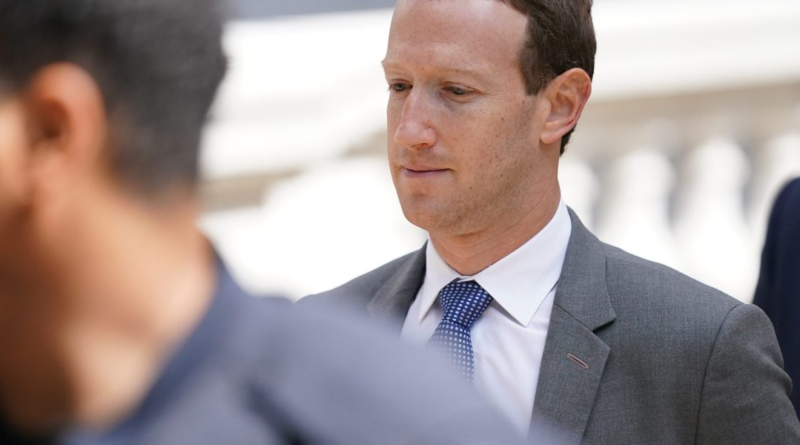Zuckerberg given 24 hours to stop disinformation about Hamas attack
The European Union has set a 24-hour deadline for Meta to tackle a wave of disinformation that has hit the platform since Hamas’s Saturday attack on Israel.
In a letter to Meta’s CEO Mark Zuckerberg that was later shared on social media, the bloc’s domestic market head reminded Meta of its requirements to moderate content in line with the EU Digital Services Act (DSA).
Thierry Breton, EU Commissioner for Internal Market, told Zuckerberg his platform had to prove it had taken “timely, diligent, and objective action” to limit the spread of disinformation.
A representative for the EU commission didn’t immediately respond to Fortune’s request for comment on the type of content Breton was referring to, or which of Meta’s platforms—Facebook, Instagram, and Threads—were in violation.
Breton urged Zuckerberg to get in touch with law enforcement and Europol to tackle illegal content and asked for a “prompt, accurate, and complete response” to prove his company is in compliance with the DSA.
Breton warned that noncompliance could result in a fine. Penalties for violating the DSA can be as high as 6% of a company’s global annual turnover, which in Meta’s case would amount to nearly $2 billion.
A representative for Meta told Fortune: “After the terrorist attacks by Hamas on Israel on Saturday, we quickly established a special operations center staffed with experts, including fluent Hebrew and Arabic speakers, to closely monitor and respond to this rapidly evolving situation.
“Our teams are working around the clock to keep our platforms safe, take action on content that violates our policies or local law, and coordinate with third-party fact checkers in the region to limit the spread of misinformation. We’ll continue this work as this conflict unfolds.”
There has been a surge in disinformation across social media platforms since Hamas attacked Israel last Saturday, so far killing 1,200 people, the BBC reported. Israel has since retaliated and killed 1,100 people, largely through air strikes on Gaza.
Fake videos and doctored images
During the conflict, social media platforms have been flooded with fake videos and doctored images, while illegal and harmful content has also appeared with limited safeguards.
On Tuesday Elon Musk and his platform X, formerly known as Twitter, received a similar warning from Breton as false information spread across his site.
This included “repurposed old images of unrelated armed conflicts or military footage that actually originated from video games.”
Musk responded: “Our policy is that everything is open source and transparent, an approach that I know the EU supports. Please list the violations you allude to on X, so that that the public can see them. Merci beaucoup.”
Research by Alethea reported by NBC News showed that 67 X accounts were spreading coordinated disinformation and receiving millions of views. They mostly contained clips of Russian government officials speaking with false captions overlaid.
On Thursday morning, Breton said the EU Commission had received a reply from Musk’s company, which the DSA enforcement team would analyze.
The EU Commissioner also called on Zuckerberg to do more to tackle election disinformation at Meta, after being made aware of a “significant number of deepfakes and manipulated content” on the group’s platforms.
The DSA was passed into law to protect Europeans from Big Tech companies as unregulated content becomes increasingly common across social media platforms.
This has arguably proliferated most at X, which is now facing its first full-blown crisis since Linda Yaccarino took the reins from Musk as the group’s CEO.


